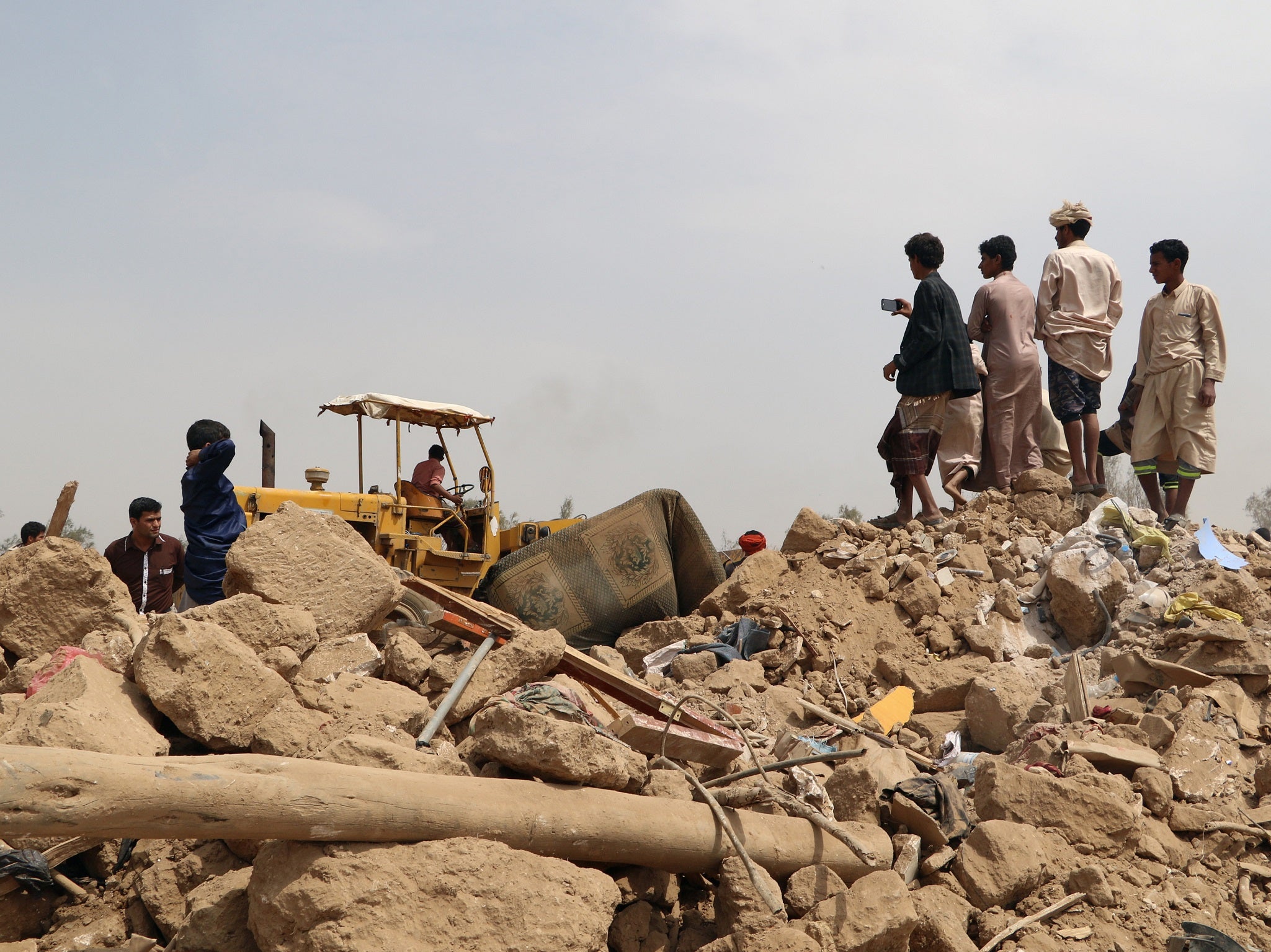Saudi Arabia accused of 'disregard' for human life by United Nations following air strike which killed 12 in Yemen
'Even wars have rules, and such rules must be respected'

Your support helps us to tell the story
From reproductive rights to climate change to Big Tech, The Independent is on the ground when the story is developing. Whether it's investigating the financials of Elon Musk's pro-Trump PAC or producing our latest documentary, 'The A Word', which shines a light on the American women fighting for reproductive rights, we know how important it is to parse out the facts from the messaging.
At such a critical moment in US history, we need reporters on the ground. Your donation allows us to keep sending journalists to speak to both sides of the story.
The Independent is trusted by Americans across the entire political spectrum. And unlike many other quality news outlets, we choose not to lock Americans out of our reporting and analysis with paywalls. We believe quality journalism should be available to everyone, paid for by those who can afford it.
Your support makes all the difference.A senior United Nations official in Yemen has condemned the Saudi-led air strike which killed at least 12 civilians, including children, saying it showed a complete “disregard” for human life.
Three women and six children from the same family were killed as they slept in the dawn air strike by the Saudi-led coalition opposing the Houthi rebels in the Yemeni civil war, according to Reuters.
The youngest of the children killed was just two years old, according to medical officials.
The civilians were killed and ten others wounded in the attack on their home in the Saada province, according to the UK’s humanitarian coordinator in Yemen, Jamie McGoldrick, and other aid groups.
Mr McGoldrick expressed “deep concern” about the Saudi-led action in an official statement in which he accused the coalition of violating international law.
“While these new incidents are still being investigated by the Office of the High Commissioner for Human Rights, they are an example of the brutality in which the conflict is being conducted.
“All parties to the conflict continue to show a disregard for the protection of civilians and the principle of distinction between civilians and combatants in the conduct of hostilities.
“As I have said before, even wars have rules and such rules must be respected.”
Yemen has been torn apart by the civil war in which the exiled government of President Abdrabbuh Mansour Hadi, supported by the Saudi-led coalition, is fighting the Iran-allied Houthi group.
The Houthi group hails from the Zaidi branch of Shia Islam and controls much of the north of the country.
Its stronghold is in the capital city, Sanaa, which has been hit by multiple air strikes since the coalition of Arab states joined the civil war in March 2015. The group opposed what it regards as Iran’s attempt to expand its influence in Yemen.
The Saudi government has so far declined to comment on the latest air strike, which has been roundly condemned by human rights groups.
It was not clear if the house was hit by mistake, but the coalition maintains that it does not target civilians.
The war has led to one of the worse humanitarian crises in recent history, displacing more than three million people and killing at least 10,000 through famine and the worst outbreak of cholera in living memory.
The Red Cross has warned an estimated 600,000 people could contract cholera as the epidemic sweeps through Yemen, where around 70 per cent of the population of 27 million is now reliant on some form of humanitarian aid.
A total of 14.5 million people do not have regular access to clean water and 7.3 million live on the brink of famine, while less than half of the country’s medical centres are still functional.
Saudi Arabia and its allies have been accused of exacerbating the crisis by obstructing the delivery of fuel for UN planes, which are attempting to bring aid into the starving country.
Western governments, including the UK, have been criticised for enabling the conflict by selling arms to Saudi Arabia which are known to have been used against the Yemeni people.
Join our commenting forum
Join thought-provoking conversations, follow other Independent readers and see their replies
Comments